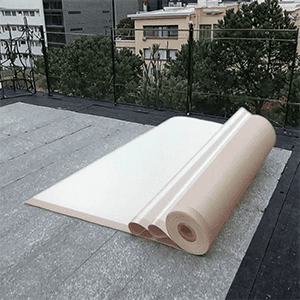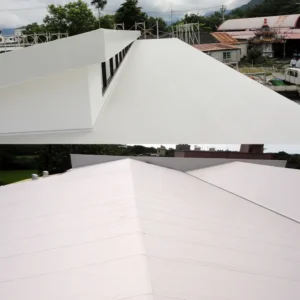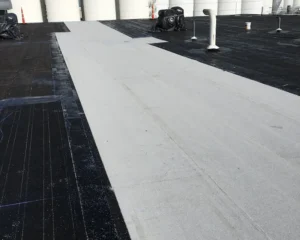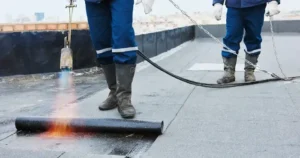Waterproof coatings are indispensable materials in the home renovation and construction industries. Their stability and durability are critical for ensuring a building’s waterproof performance. However, many people overlook an important question when using these coatings: Can waterproof coatings expire and lose effectiveness? This article will explore the shelf life of waterproof coatings, the changes that occur after expiration, and the impact of expired coatings on application and performance.
Understanding the Shelf Life of Waterproof Coatings
Like any product, waterproof coatings have a shelf life. The shelf life refers to the period during which the product maintains its quality and performance under specified storage conditions. The duration depends on the coating’s composition, packaging, and storage environment.
Generally, well-sealed waterproof coatings stored in a cool, dry place have a shelf life of about one year. If stored in a dark, shaded area away from sunlight and left unused, coatings can typically remain stable for up to 10 months. However, this does not mean the coating will automatically spoil after this period. Beyond the shelf life, the quality may gradually decline, and the performance could be affected.
How Expiration Affects Different Types of Waterproof Coatings
The degradation of waterproof coatings is closely related to their composition. Different types of coatings have different ingredients and properties, so their behavior after expiration varies.
-
Polymer Emulsion-Based Coatings: These water-based coatings contain nutrients that can support microbial growth. Under favorable conditions, microorganisms can proliferate and break down the coating, causing quality deterioration or complete spoilage. Common signs include separation (where the surface water cannot be evenly mixed), unpleasant odor, emulsion breakdown, and loss of adhesion. Powder-based components can clump together, making them unusable.
-
Polyurethane Coatings: These contain reactive chemical groups, which can slowly cross-link even in sealed packaging. Over time, this internal reaction can render the coating unusable. Improper storage—such as high heat, humidity, or damaged packaging—accelerates cross-linking, causing the coating to gel or thicken. Expired polyurethane coatings typically show a sharp increase in viscosity or gel formation.
-
Acrylic Single-Component Coatings: Expired acrylic coatings may also show separation, odor, emulsion breakdown, or loss of stickiness. Sediment may form at the bottom, making it difficult to mix evenly. These changes severely compromise waterproof performance.
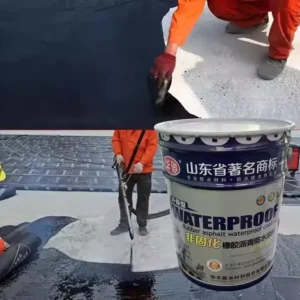
The Impact of Expired Coatings
1. Reduced Waterproof Performance:
The primary function of waterproof coatings is to form a water-impermeable layer on building surfaces. Expired coatings lose surface hardness and chemical stability, reducing waterproof effectiveness. Even if applied, the result may not meet the required standards, creating potential leakage risks.
2. Difficulty in Application:
Degraded coatings may change in thickness and viscosity, making them harder to apply. This increases labor intensity, reduces application efficiency, and can negatively affect the quality of the construction.
3. Health Risks:
Expired coatings may release harmful gases or substances due to chemical changes. Workers may inhale or come into contact with these compounds during application, posing health risks.
How to Prevent Waterproof Coatings from Expiring
-
Choose Fresh Products: When purchasing, select coatings with the most recent production dates to minimize expiration risk.
-
Proper Storage: Keep coatings sealed in a cool, dry place away from heat, humidity, and direct sunlight.
-
Regular Inspection: Periodically check stored coatings and handle any signs of deterioration promptly.
-
Pre-Application Checks: Thoroughly mix coatings before use and test them on a sample board to ensure consistent waterproof performance. Discard any coating that shows signs of spoilage.
Proper Disposal of Expired Coatings
Expired coatings should not be discarded casually. They may contain hazardous substances that can pollute the environment. The correct approach is to send them to authorized facilities for safe disposal.
Conclusion
Yes, waterproof coatings can expire and lose effectiveness. Their shelf life depends on composition, packaging, and storage conditions. Expired coatings may degrade, reducing waterproof performance, complicating application, and posing health risks. To ensure the long-term waterproofing of buildings and the safety of occupants, it is crucial to pay attention to the shelf life and take preventive measures to avoid using expired coatings.
Contact Us
For more information or to inquire about our waterproof floor paint solutions, feel free to get in touch with us. We’re here to help!
- Phone: +86 138 6365 6701
- Email: Huafengwaterproof@gmail.com
- WhatsApp: +86 138 6365 6701
We look forward to assisting you with all your waterproofing needs!

